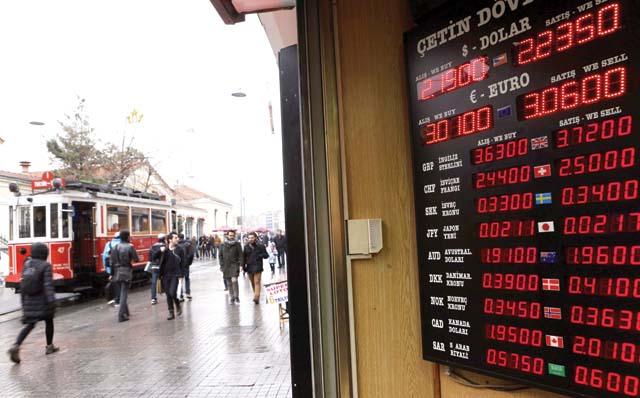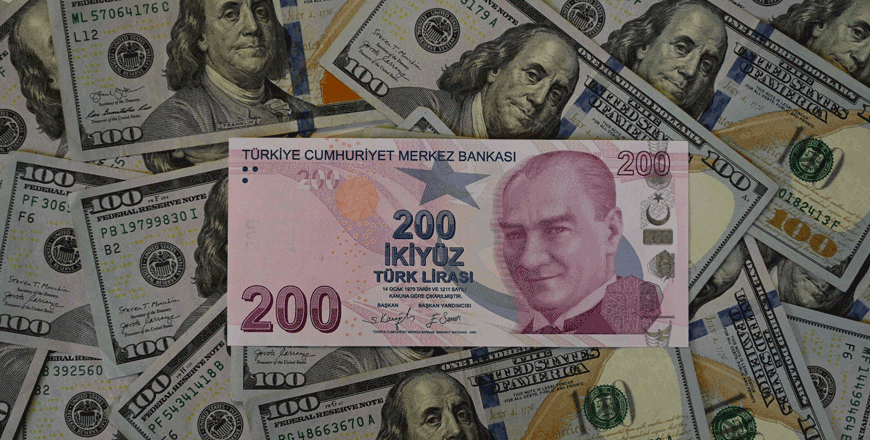ANKARA — The Turkish government, battling an escalating political crisis, turned Tuesday to limit potential damage to the economy, downplaying its effect on growth.
Finance Minister Mehmet Simsek said the crisis, which has seen the lira plunge to record lows, would likely be short-lived and Turkey’s economy would post the 4 per cent growth it has forecast.
He also dismissed the need to raise interest rates, which economists and analysts have been warning Turkey may need to do to ensure inflation and the country’s large current account deficit remain under control.
The Turkish government has been struggling to contain the political fallout from the graft probe that poses the biggest challenge to the 11-year rule of Prime Minister Recep Tayyip Erdogan.
The high-level corruption scandal centring on allegations of bribery for construction projects as well as illicit money transfers to sanctions-hit Iran has rattled Erdogan’s Islamic-leaning government ahead local polls in March and presidential elections in August.
The probe, which has seen dozens of top businessmen and political figures including the sons of three ministers arrested, has pushed the government to sack hundreds of police involved in corruption investigations.
After touching a new record low 2.19 lira to the dollar on Monday, the Turkish unit rebounded Tuesday following the Simsek’s comments to 2.16.
Stocks, which have also slumped, rose by 0.84 per cent.
Simsek acknowledged on CNN-Turk television that the government is facing a “significant challenge” in the political arena, “but we think this will not go on for a long time”.
He downplayed the economic impact.
“There could be a slowdown to some extent in the first quarter. But I believe that as uncertainty lessens and the environment calms, growth could still be around 4 per cent,” Simsek said.
The government has been forecasting that growth will pick up from an expected rate of 3.6 per cent in 2013 to 4 per cent for this year.
Simsek also rejected the need to raise interest rates, saying it could contain the current account deficit “by limiting loan growth”.
He said Turkish authorities had already managed to contain credit growth, one of the main causes of Turkey’s trade and investment imbalance, without raising interest rates.
The Turkish government is taking non-traditional measures to limit demand for imports that is behind the large current account deficit of 7.5 per cent of the gross domestic product (GDP).
It has announced a crackdown on excessive consumer debt that will see tighter limits imposed on credit cards, including restrictions on what people may purchase.
But while the central bank has not raised its official policy rate of 4.5 per cent, it has become effectively inoperative in recent months, with bank’s increasingly only able to borrow from the central bank at the overnight rate of 7.75 per cent.
The Turkish central bank has been selling off its dollar reserves to support the lira, but has so far not raised official interest rates.
Higher interest rates would help attract foreign investment, but slow economic growth.
Foreign analysts are not as confident that Turkey’s economy will escape unscathed.
Fitch ratings agency, while it maintained Turkey’s sovereign credit rating at BBB-, the lowest invest-grade rating, warned Tuesday the economy remained vulnerable.
“If the corruption scandal drags on, it could weaken the government and undermine its ability to take timely policy measures that would maintain economic stability,” it said.
With limited reserves, the central bank may raise interest rates.
“The recent fall in the lira may now force its hand,” said William Jackson, an economist at London-based Capital Economics. “On balance, we think it is more likely than not that policymakers will raise the [overnight] lending rate” at this month’s monetary policy committee meeting.

















